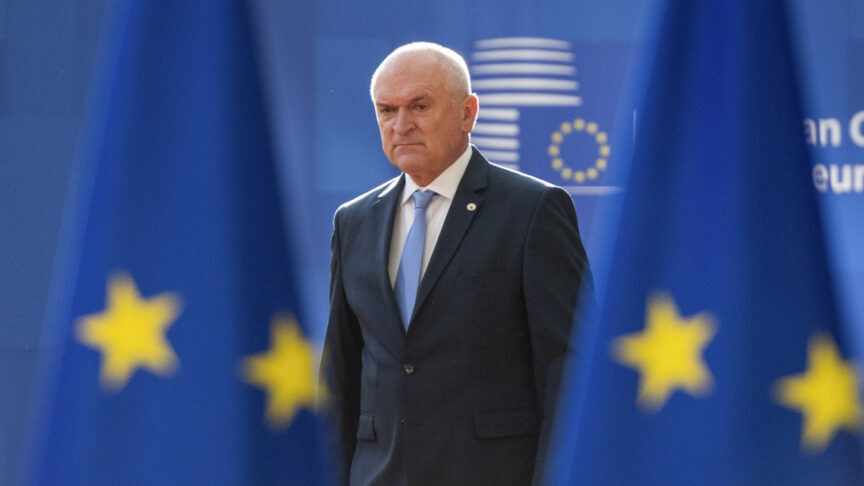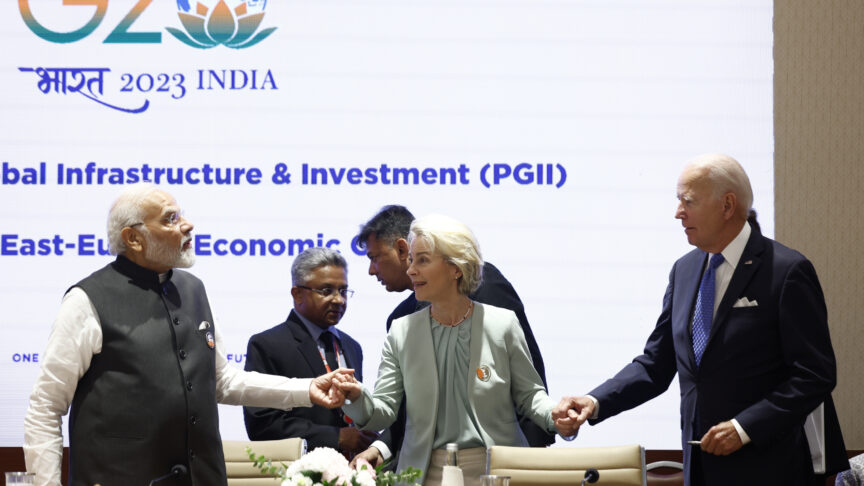Sudan: the EU?s election problem
The EU has had to withdraw its election observers from Darfur before the upcoming Sudanese election. No surprise there: Darfur remains a dangerous place. But what why did the EU get involved in this controversial poll in the first place?
This week, the head of the
European Union’s election observation mission in Sudan
pulled her staff out of Darfur, citing
“terrible violence” across much of the region.
While this was probably the right choice – and there were only six EU
observers in the region anyway – it raised troubling questions. What sort of situation did the Europeans
expect to find in Darfur? Why did they think that election monitors
would do any good there?
The violence in Darfur
is well below the levels of five to six years ago, but it is still a dangerous place
to be. Sixty UN peacekeepers were recently
trapped and disarmed by bandits. Aid
workers report that the UN contingents, often operating alongside Sudanese
forces, have little choice but to turn a blind eye to the notorious janjaweed militias.
None of this is secret. The UN may struggle in the region, but its
presence allows a steady stream of journalists to report on the situation. Even if it went unreported (and Darfur has started
to disappear from the headlines) European intelligence agencies, which have a
significant presence in Sudan
and neighbouring Chad,
surely know all about it.
So the fact that Darfur is in chaos – and that this weekend’s Sudanese
elections might well exacerbate the chaos – should have been obvious. The flaws in those elections, which almost
all major opposition parties are boycotting on the grounds that they won’t be
either free or fair, were also entirely predictable. The International Crisis Group argued in February
that the EU was wrong to send observers to these “sham elections”.
In case anyone had missed the
point, Sudan’s
President Bashir noted that if the election observers caused any trouble, he’d
“cut off their fingers and crush them under our shoes.”
So why does the EU have observers
there at all? There are two arguments
for having them there: political pragmatism and the fact that, well, it’s just
what the EU does.
The pragmatic argument goes like
this. Sudan is on verge of splitting
apart. Next January, the will be
referendum in the south of the country on whether to secede. Analysts are increasingly concerned (and in
some cases entirely confident) that this will lead to very large-scale violence
indeed. It may be horrible in Darfur, but it’s pretty bad in the south as well. Over four hundred people have been killed
there this year alone. There was a
slaughter in one village after a local boy refused to give a soldier any milk.
In this context, there’s a
Hobbesian argument that says: anything is better than anarchy, and if we can
sustain the Sudanese government for now, we may find a way out of this mess
before next January. It’s therefore
necessary to show we take the government seriously, even if that means getting
involved in an electoral process that is flawed.
That’s an ugly argument, and it
may well be wrong (the dynamics of violence in Sudan aren’t that simple). At least it has a certain grim, Kissinger-ian
logic to it. Scott Gration, President
Obama’s top man on Sudan,
has said that he “has confidence” that the elections “will be as free and fair
as possible”. Why should the EU follow a
different strategy?
But the EU often seems to send
election monitors to troubled states without really thinking through the
strategic logic at all. The Commission currently
sends out roughly ten Election Observer Missions a year. The observers are sometimes frank about
errors and fraud when they find them, as they did in Kenya
in 2007 and Afghanistan
last year.
The idea, of course, is that
these displays of European displeasure will deter parties from fraud. In the 1990s, election observers across the
former Communist bloc played an important role in setting and monitoring the
standards for liberal democracy. The
high-point of this era was probably the 2004 Ukrainian elections, when negative
reports by election observers paved the way for the Orange Revolution and a
re-run of the polls.
But there has been an increasing
push-back against this sort of monitoring (although, ironically, the U.S. allows
OSCE election monitors to probe its own elections).
This push-back has come from
leaders ranging from Vladimir Putin (who blocked the OSCE from monitoring Russian
polls) to Hamid Karzai, who is still locked in a battle with the US, UN and EU
over whether he was freely and fairly elected last year. The problem is that the West has little
choice to stick by Karzai however he got into power.
Similarly,
President Bashir probably assumes that he can run a rigged election and weather
whatever flurry of negative observers’ reports follows. The EU can look principled but ineffectual by
condemning all the flaws they find, or craven by giving these elections a
“pass” grade. We should be thankful that
there are European observers prepared to go to places like Darfur at all – the
head of mission in Darfur, Veronique de Keyser had powerful things to say about
the basic impossibility of a clean election amid Darfur’s
violence, which was praiseworthy. But it
is a mistake to send them to places where their presence will be abused.
Click here to listen to Richard explain why the elections matter to the EU
The European Council on Foreign Relations does not take collective positions. ECFR publications only represent the views of their individual authors.


